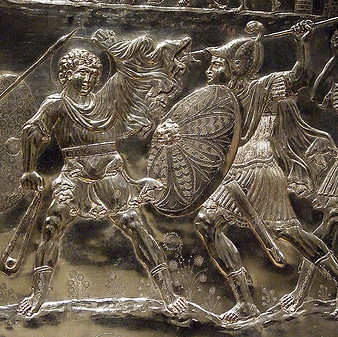
There is a fundamental difference between religion, which is based on authority, and science, which is based on observation and reason. Science will win because it works.
Religion is a culture of faith, science is a culture of doubt.
The apparent conflict between science and religion has persisted in the minds of ancient philosophers and modern scientists alike. How can Christians respond to this kind of criticism? Many hold views which seem to put science and religion at odds with one another. Science uses facts, but religion uses blind affirmation, so the story goes.
On the contrary, many of the scientific beliefs which laymen hold are based on the authority of experts. This authority is certainly legitimate, but its prominence is sometimes swept under the rug.
Rather than blindly affirming the truth of the Bible Christians can and should found their beliefs on historical evidence and sound philosophical reasoning. There is of course an element of authority, specifically with unreachable claims (e.g. life after death), but it need not play such an integral role as the scientists above claim.
Instead of pitting these two systems against each other it is important to recognize the domain of each. If they are attempting to describe different components of the world then they need not use the same tools in discovering them. Loosely speaking, science is the act of describing the natural world through repeatable laws and tendencies while Christianity seeks to understand the characteristics and tendencies of God. The differences between which questions these two systems are answering implies differences in the kinds of justifications which each provides. Because science describes the natural world it relies heavily on empirical data. Science is done by observing a natural process and providing a coherent description. If such natural processes were all that composed the world we may not expect any other legitimate means to come to truth.
Nonetheless, science appears to fail in important circumstances such as interpreting these data, or in establishing the legitimacy of science itself. These more general claims about the foundations of science and utility of observations require a different mode of verification. This different method is composed of non-empirical structures of logic and reason which are themselves based on other metaphysical principles.
Religious claims appeal to both classes of arguments. Claims such as Jesus of Nazareth came back to life require more empirical evidence but claims such as the existence of minds may be more metaphysically justified.
Generally speaking, Christianity makes claims which are based on evidence found in the natural world, but also extends these findings into the metaphysical regime. Authority plays a role in this extension, but only because such authority is grounded in evidence.
Thus, when responding to claims that science is the only legitimate pursuit of truth while Christianity is some opiate for the dim-witted we may utilize a firm foundation of evidence-based claims (as the scientist desires) along with a proper justification for the legitimacy of such claims. Furthermore, Christians have a diverse tool chest on which to base many other claims which science alone is ill-equipped to pursue.








